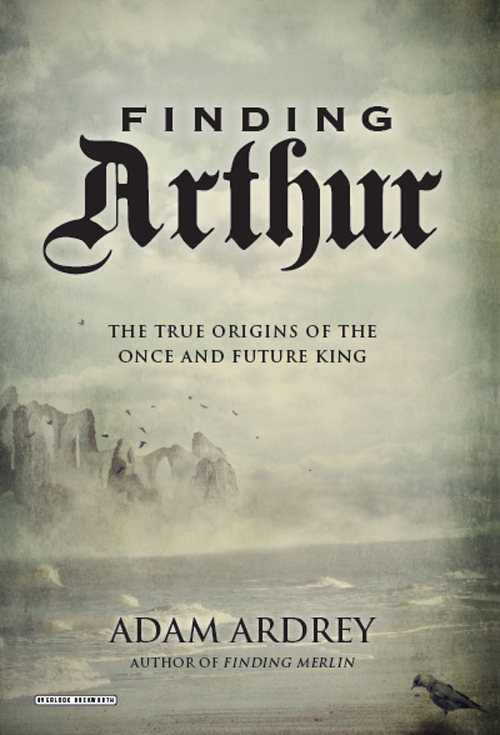
Finding Arthur
The True Origins of the Once and Future King
کتاب های مرتبط
- اطلاعات
- نقد و بررسی
- دیدگاه کاربران
نقد و بررسی

January 27, 2014
There is an entire subculture devoted to proving that King Arthur existed and Ardrey (Finding Merlin) adds to the speculation in a selective look at the literatureâand some faulty etymologyâthat leads him to believe that Arthur was not a Christian Romanized Briton but a pagan Scot. Conveniently, Ardrey is a Scot with Scots-Irish roots. He hints that his last name might be from the Scottish Ard Righ or High King, thus linking him to Arthur. Combing through translations of early chronicles and poetry, along with medieval authors such as Geoffrey of Monmouth, Chrétien de Troyes, and Malory, he chooses passages that fit his theory. Name changes and Romanization of characters are simply a plot by The Church to stamp out the old religion; writers as late as Malory were "not brave enough to put story-telling first and so he bowed to the power of the Church." Ardrey delves into every linguistic cranny to set each of the battles of Arthur north of Hadrian's Wall. He also concludes that the early writer Gildas suppressed Arthur's story "because Arthur killed Gildas's brother Hueil." Ardrey's theory is firmly in the tradition of Arthurian fiction; as with similar work, refuting it point by point would require several volumes.

December 1, 2013
Using novel interpretations of scant records, geography, and ancient languages, Ardrey (Finding Merlin: The Truth Behind the Legend of the Great Arthurian Mage) asserts that the real King Arthur was Arthur Mac Aedan, a late sixth-century Scottish warlord. This "truth" was concealed by the church, which hated the man for believing in druids, and by the English so they could promote a sanitized Arthur as their own. Although competent at tearing apart previous claims for a real Arthur, Ardrey poses etymologies and connections that are completely unsound, ascribes to Arthur a form of druidism (pluralistic liberal progressivism) that has no basis in the written or archaeological record, and demonstrates a lack of understanding of medieval religious experiences, particularly in hagiography and relic worship. Further, he fails to grasp the natural process of myths cross-fertilizing with cultures that adopt and adapt them--there is no conspiracy involved in Arthur's story becoming Christianized and Anglicized. VERDICT Ardrey's work is no less believable than many other books seeking a historical Arthur; fans of the figure are likely to find it a fun book to read. There is some sound literary analysis of the legends. While this is not the rigorous historical study Ardrey claims, followers of the Arthur myth, readers attracted to druidism, and those who enjoy the idea of conspiracies may like it.--Evan M. Anderson, Iowa State Univ. Lib., Ames
Copyright 2013 Library Journal, LLC Used with permission.

October 1, 2013
Attorney Ardrey (Finding Merlin: The Truth Behind the Legend of the Great Arthurian Mage, 2013), a master of investigating minutiae, analyzes just about every word ever associated with Arthur to establish the true history of the legend. The author's legal mind asks every question and explores every possibility, and he dissects all the main stories linked to the Arthurian legend, among them the Welsh monk Nennius' The History of the Britons (circa 830), the works of the Dark Age poet Aneirin, Geoffrey of Monmouth's History of the Kings of Britain (circa 1136) and Thomas Malory's Le Morte D'Arthur (1485). Ardrey's ability to take the smallest evidence and develop it into the answer he's looking for will impress many readers. Even as earlier writers adapted Arthur to fit either their patrons' needs or avoid the censure of the Catholic Church, so Ardrey fits the tales of Camelot, Excalibur and Avalon neatly into the geography of Scotland. After years of argument over whether this king was from Wales, Devon or Cornwall, the author's arguments make enough sense that readers will be inclined to accept them as fact. What set him off on this quest was his discovery of an Irish-English dictionary based on sixth-to-ninth-century sources, and differences in languages in various regions enabled him to trace the earliest history of the Scots. He describes the word origins of the names and places associated with the king, right down to naming him as Arthur Mac Aedan. The author claims that without Wallace and Bruce, Scotland would never have survived, but without Arthur and Merlin, it never would have been born. He also provides a useful chronology and glossary of names. Ardrey puts forth well-made arguments backed by archaeology, etymology and geography. Although the book is occasionally prolix and repetitious, it will have readers rooting for a Scottish Arthur.
COPYRIGHT(2013) Kirkus Reviews, ALL RIGHTS RESERVED.

























دیدگاه کاربران